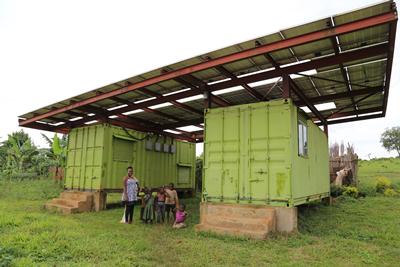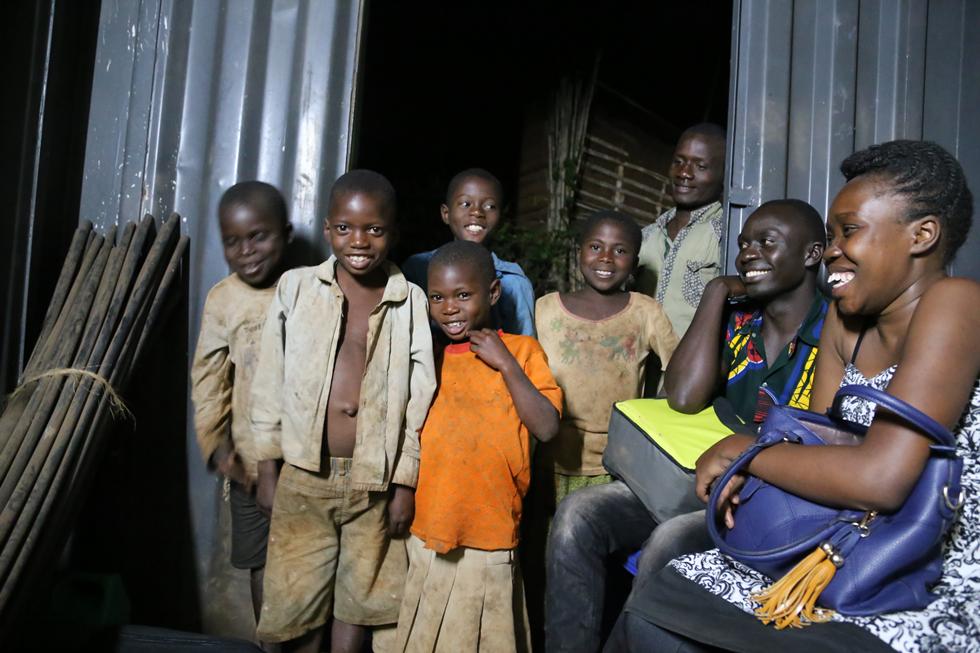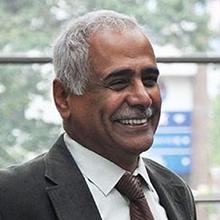Southampton researchers develop world’s first solar-powered mini-grids with hydrogen storage for Uganda

Engineers from the University of Southampton are part of a consortium funded by the Belgian Government to deploy a solar photovoltaic mini-grid project with hydrogen storage in Uganda.
The three mini-grids – the first of their kind in the world - will augment the previously deployed mini grids designed by Southampton’s Energy and Climate Change Division and Sustainable Energy Research Group and delivered jointly with the Rural Electrification Agency (REA) in Uganda.
Mini-grids are systems that produce and distribute electrical power in the same fashion as a national grid, except at a small scale in terms of footprint and the number of connections. Power generated can be derived from various sources of renewable energy or fossil fuels. Southampton’s mini-grids are “green” utilising solar photovoltaics to directly convert sunlight into electricity.
The newly-announced mini-grids, with two using hydrogen storage and the third using batteries, will be built and deployed by Tiger Power a Belgium company specialising in containerised solar power systems. The deployment will be in the same district of Uganda (Kyenjojo) as the previous mini-grids. Currently, these communities lack access to electricity and the plan is to provide them with power by mid-2019.
Tiger Power is building the solar power plants in each village and REA will provide the grid infrastructure. The running of the mini-grids is based on the Energy for Development concept developed by the Southampton team where such projects are run and maintained by the communities they serve, through cooperatives encapsulating an energy service company. This is advantageous as it provides local capacity, employment and security for the plant.
The Southampton team of researchers will be embedded in the project from its inception with opportunities for Masters-level students to apply for visits to the project and carry out research towards their thesis in the summer. The team will carry out energy needs assessment as well as understanding of the socio-economic impacts of Tiger Power's mini-grid projects.
Professor AbuBakr Bahaj, Head of the Energy and Climate Change Division at the University of Southampton, commented: "More than 90% of rural Uganda still lacks access to electricity. This is one of the biggest obstacles to alleviating poverty and creating economic development. The mini-grids in Kyenjojo will provide reliable power for all aspects of the communities’ needs, health, education, businesses including the old and the new (miller and the welder). Our experience with other projects in Uganda and Kenya is that this type of solar mini-grids will invigorate the communities in many positive ways.
Chris Prengels, CEO of Tiger Power, added: “We use the surplus of solar electricity during the day to produce hydrogen - the most known element in the world. The electricity causes a chemical reaction separating H20 (water) into H (hydrogen) and O (oxygen). The hydrogen gas is stored and turned into electricity when needed. In this way, we can power the community without the use of a diesel generator. This means completely pollution free electricity.”

